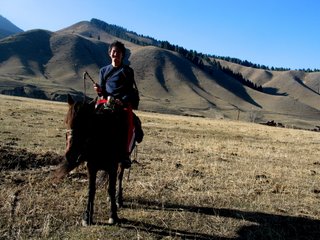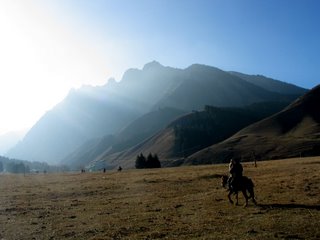So this week has been quite hectic catching up with work, deciding what classes that I would take for sure, in addition to meeting some new people. On Thursday, I went out with a few classmates and started our first segment of filming for the Martin Luther King Jr. project in China. In order to increase awareness of Martin Luther King Jr.’s ideas and teachings, those of us that are interested are helping out in various aspects. I am focusing on documenting the cross-cultural discussions about MLK in addition to working on a five minute promo video to explain to potential donors what this project is about. Thursday evening, myself and a couple of the students that volunteered to help teach Negro Spirituals to the Chinese singing group, went to the Foreign Studies Institute not too far from Peking University. We spent two hours working with the students. At first they seemed really apprehensive about singing this foreign style of music, but after repeating Wade in the Water and We Shall Overcome a number of times together, the group began to loosen up. By the end of the evening we were able to convince two students to try the pieces solo and we were even able to get the teacher, who spoke no English, to do his best to sing the pieces in front of everyone.
The Chinese students started with a look of bewilderment on their faces, which then turned into fascination and concluded with eager determination. As I watched these transitions I wondered how much of the essence of the music was able to transcend the language barrier. But even if the only thing that made it across was the power of the music and the rhythm, I believe that counts as a significant milestone.
Fast forwarding to today, I spent the greater part of the morning and afternoon at the house of my newly adopted grandmother. I was introduced to her and her daughter through her son, who is my mother’s co-worker. On Saturday they had taken me to see a Chinese dermatologist; they woke up at 7am to take a person they have never met to the doctor! As if that weren’t enough, they invited me over to their house today to have lunch with them. After they invited me into their home, they told me to sit down and watch television, but being the nosy person that I am, I couldn’t sit still; I got up and walked over to the kitchen to ask if they needed any help. In typical Chinese courtesy, she answered, “No, why don’t you go rest and watch some televison?” Since I didn’t want to waste the opportunity to watch an elderly Chinese woman cook, I made a compromise with her and told her that I would sit in the kitchen and watch her cook.
As she continued to prepare the dishes, she began to teach me about the four main styles of Chinese cooking. As she listed them, her daughter, who was in and out of the kitchen, but carefully listening to the entire conversation, would occasionally challenge her mother’s explanation; the two would playfully banter in a way that seems almost too cute to be real—but real it was. By the time she had finished preparing, I had already jotted down a brief introduction to Chinese cooking in my little notebook as well as a couple of names of different dishes that she was preparing. Within fifteen minutes, three quarters of the meal was cooked and the daughter and I commenced with the feast. As we ate the delicious food, Gao nai nai (her last name is Gao and nai nai is the equivalent of granny, which is what you would call someone that is old enough to be your grandmother) continued the conversation about the history of Chinese cuisine. As our chopsticks moved swiftly back and forth between our plates and our mouthes, I managed to pass around my little notebook and have the both of them take turns writing in the Chinese characters of the dishes that I couldn’t write. By the time the chicken soup came out, four pages were already full. After we had overstuffed our stomachs, Gao nai nai and myself made it over to the sofa; there was a girls Badmington match currently underway, two Chinese woman that battled it out match point after match point. For the next few minutes, the flow of the conversation followed the flow of the game. After the match was over, Gao nai nai decided asked me what I wanted to do when I graduated; I told her that I was planning on going back to Japan. Both her and her daughter seemed a bit disappointed; when she asked we why I told her that I wanted to go back to solidify the language. A few moments passed and then she asked another question, this time about my identity an Chinese American. She said to me, “Kevin, don’t forget, wherever you go, whatever work you end up doing, you will always be Chinese.” She got up and demonstrated what it looks like to be able to be able to communicate with everyone around you but to have your two feet firmly planted on the ground; the ground was China, and everything else was the world.
She continued to question me about my identity and I ended up saying that I didn’t think that I was either wholly American or wholly Chinese. Her response was, you probably think that way because you think American = White. I nodded; even though it doesn’t mean that to me and many other people I know, I am willing to believe that the stereotype holds true in many cases. She said that a man should know his identity, it doesn’t matter what he chooses so long as he is consistent and firm; I can be Chinese or I can be American, but I either way I need to be firm in what I choose. I agreed with her and ruminated over her words of wisdom.
After chatting for another hour or so, I finally managed to convince them to drive me home; I think if I had let things go, I would have ended up eating dinner there as well. But on the drive back to campus, she said, “You know, you can be my grandson.” She was satisfied after calculating our difference in age that we could indeed be grandmother and grandson. Pulling up to the small west gate of Peking University, I stepped out of the car and said goodbye to my new grandmother and my new auntie and I for the first time in a long time, I felt proud to be Chinese.





